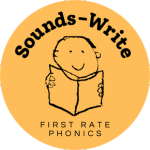After publishing our Phonics Lead Handbook in 2023, we wanted to hear from those who are using it, so we spoke to Karen Rees, a Year 1/2 Class Teacher and Key Stage 1 Leader, who is the Phonics Lead at Galley Hill Primary School in Guisborough, Teesside. Karen thought the Handbook was ‘a super resource and so helpful, I couldn’t believe it was free!’ She also shared with us some very useful suggestions on how she goes about ensuring that the implementation of Sounds-Write is as effective as possible in her school.
‘The biggest thing for me has been monitoring phonics really closely. I do a lot of learning walks and observations, staff meetings, and send emails reminding staff of the expectations. I support staff to deliver phonics the best way they can. I have a very supportive approach and demonstrate lessons and welcome observations in my own lessons and offer team teaching. I think people do not understand the importance of the scripts at first, and do not have them to hand, but this has been a really big thing for me to make sure staff know that they must use them, both lesson scripts and error corrections. I regularly remind staff to have their manuals to hand and have told all the children to ask the teacher where their phonics book is, each time they begin a lesson!! So, it’s not just me asking the staff, it’s the children too!
I’ve also worked really hard to link Sounds-Write into areas where I can, for example our weekly spellings in Key Stage 1 link to sounds learned and have key words from the curriculum incorporated into each list. Key Stage 2 spellings are also linked to Sounds-Write and we continue to incorporate polysyllabic lessons as part of spelling cycles in KS2. Our reading books link, now in guided reading too, as well as books we send home. I offer support to parents, by inviting them into school and demonstrating lessons and help them to support their children at home through activities.
For us, the key to success for reading and spelling is to create as many opportunities as possible. We have phonics jobs in provision areas too. We just try to expose the children to phonics everywhere as opposed to just one phonics session a day.
I also insist that phonics is never missed. For example, if we have a visitor in, we make sure we still have 9:00 – 9:30 available to teach phonics and then we are free for the visitor after 9:30. Nothing stops us, as I believe consistency is key. Teaching phonics first, as the first session of the day, has also had a better impact for us.
I think I’m just really ‘tight’ when it comes to leading phonics. I think it’s a big investment, and if schools choose Sounds-Write, then they need to fully invest. I’m such a big believer!’
Trained Sounds-Write practitioners can find the Phonics Lead Handbook in the UK or Australian Downloads area under ‘Planning, Implementation & Tracking’.

